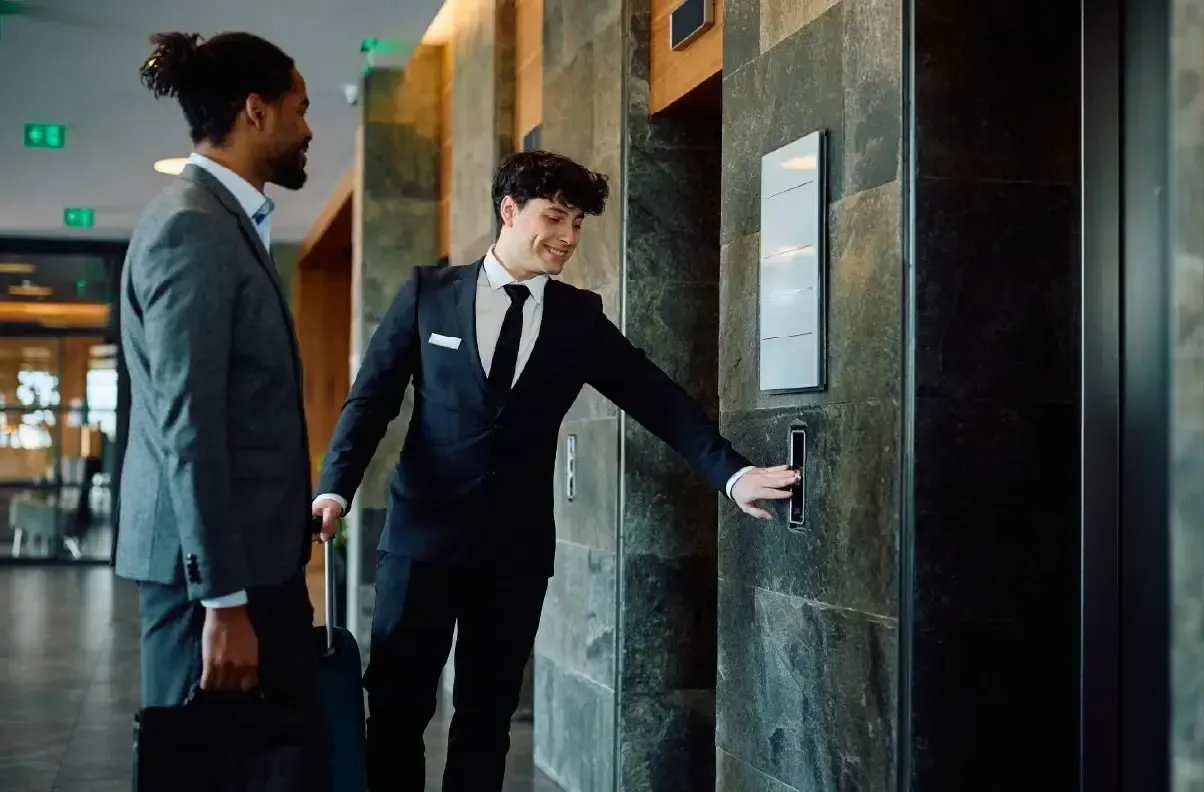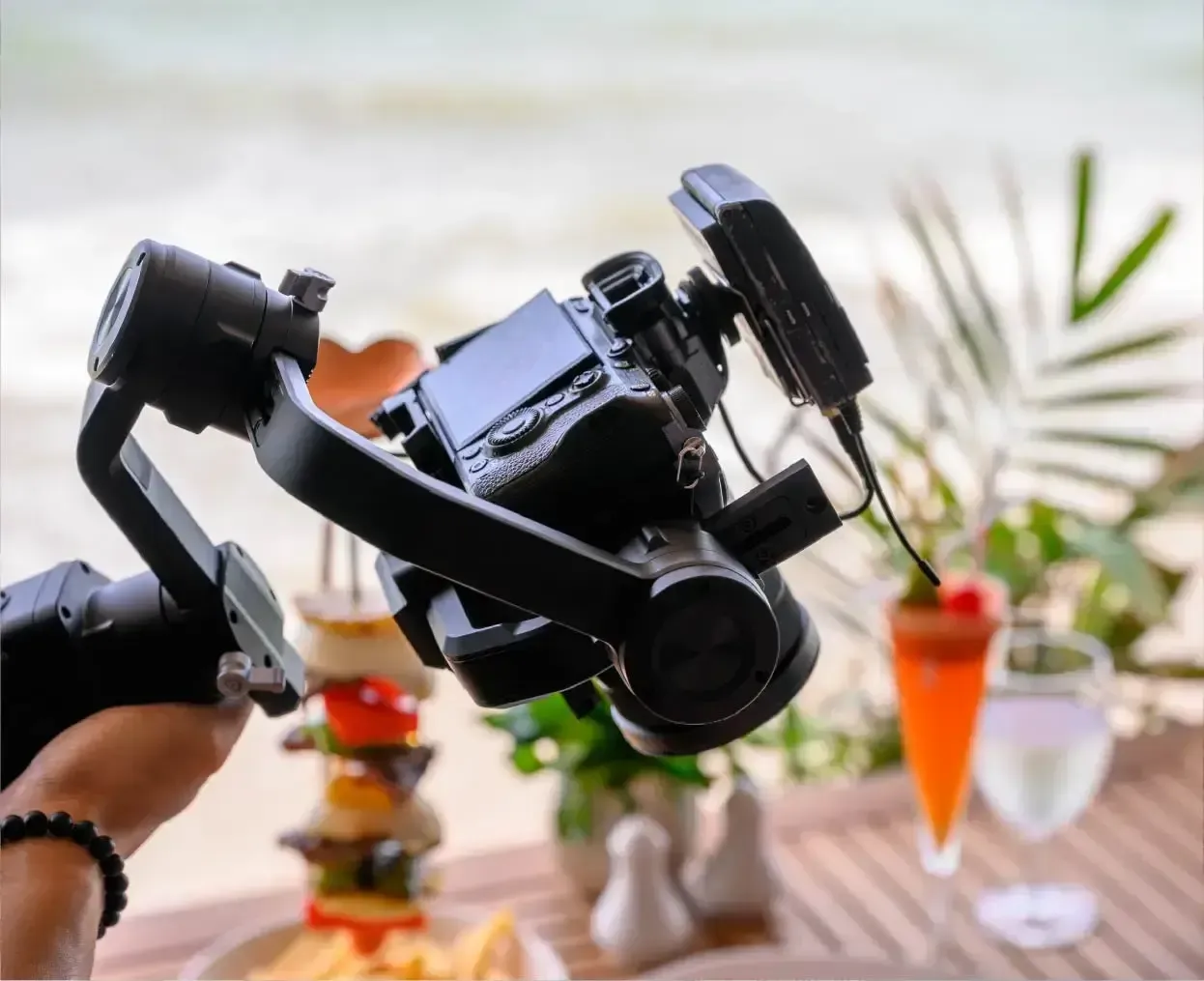Understanding the best hotel distribution channels for your hotel is one of the keys to profitability. The right mix of direct channels like your hotel's website or call center, and indirect channels like online travel agencies (OTAs) and Global Distribution Systems (GDSs) as well as travel wholesalers and tour operators will make a huge difference to your hotel's bottom line.
That being said, there is no one-size fits all perfect mix. Instead, the right distribution mix for your hotel will depend on who your target audience is, what other hotels in your comp set are doing, and your overall budget. We'll take a look at the means of distribution and the different channels in order to give you a complete guide to building your hotel's ideal strategy to optimize results.
What is a hotel distribution channel?
A hotel distribution channel is how your hotel's offer reaches your target audience. This can be done via a variety of methods or platforms through which you sell your hotel rooms. Possible methods include online travel agents, booking engines, phone and other offline means, metasearch and global distribution systems.
It goes without saying that using a variety of channels allows you to create a strategy that will drive bookings and positively contribute to revenue.

Why are hotel distribution channels important?
Hotel distribution channels are important because they are what help your hotel to expand its reach, generate bookings and elevate your brand. The larger the audience you can reach, the more chances you have of increasing bookings and driving revenue. Having a diverse distribution strategy is key to your hotel's profitability and helps to boost occupancy rates, which ultimately drives more revenue per available room.
Benefits of distribution channels in the hospitality industry
There are many benefits to using multiple distribution channels. They help expand your reach, reduce risk, and give you better insight into your guests - all of which support a smart revenue strategy.
Target diverse audiences
A varied distribution strategy doesn't just boost profitability - it also helps you reach different types of guests. Each channel attracts its own audience, so the more places you're listed, the more chances you have to connect with travelers who might not have found you otherwise.
Reach more guests
OTAs like Booking.com and Hotels.com have massive audiences. Partnering with them can increase your visibility and help fill rooms faster, especially during lower-demand periods.
Reduce reliance on a single source
Leaning too heavily on direct bookings can be risky - especially if guests haven't heard of your hotel before. Well-known distribution platforms offer reassurance, making it easier for new guests to choose you with confidence.
Gain valuable insights
Third-party channels don't just drive bookings - they can also give you data to better understand guest behavior. With the right insights, you can fine-tune your offering and make your hotel more appealing to the guests you want to attract.
10 different types of hotel distribution channels
There are many different types of distribution channels your hotel can use to reach its ideal audience. Let's look at some of the most common ones and how they can work for you.
Direct
Direct bookings are the most profitable because you avoid paying commission to third parties. Here are some key direct channels to prioritize:
1. Your hotel's website
Your hotel's website is one of the most powerful direct booking channels you have. To convert visitors into guests, it needs to be mobile-responsive - since a significant share of bookings now come from mobile - and SEO-optimized to rank well in search engines. A clean, user-friendly design and seamless booking experience can make all the difference when it comes to capturing direct sales.

2. Your hotel's social media channels
Social media is increasingly becoming a direct booking channel. Make sure your profiles are optimized for conversion, with clear calls to action and links to your booking engine. The easier it is for guests to take action, the more likely they are to complete a booking directly from your page.
3. Your hotel's booking engine
Today's guests prefer to book online, which makes a strong booking engine (like Mews Booking Engine) essential. It should be integrated into your website, easy to navigate, and designed to remove friction from the booking process.
Indirect
Indirect channels include OTAs, GDSs, metasearch engines, wholesalers and tour operators. These platforms extend your reach and can play a key role in your distribution strategy.
4. GDS
Platforms like Amadeus and Sabre connect your hotel with travel agents and maintain up-to-date information across global systems. GDSs remain a popular tool for managing rates and availability across markets.
5. Online Travel Agencies
OTAs such as Booking.com and Expedia help you reach a massive audience thanks to the significant advertising budgets they fund through hotel commissions. When used strategically, they amplify your marketing efforts without the same level of direct investment.
6. Metasearch engines
Metasearch engines like Google and Skyscanner compare rates across multiple booking channels, giving price-sensitive guests a snapshot of your best deals. They're a smart way to increase visibility and capture bookings you might otherwise miss.
7. Wholesalers
Wholesalers connect hotels with travel agents by packaging inventory in bulk. While margins are typically lower, they can be a useful tool for increasing volume - especially in low-demand periods.
8. Tour operators and travel agents
Travel agents offer curated, personalized service, which makes them especially valuable for boutique or luxury hotels. Their trusted networks and ability to match the right guests with the right properties give them a unique advantage in distribution.
Offline
While digital channels dominate, offline bookings still have a place - particularly when supported by personal service and local presence.
9. Phone bookings
Phone reservations may be less common among younger travelers, but they remain important for older guests. Make sure your staff are equipped to handle phone enquiries confidently and guide callers through the booking process.
10. Strategic partnerships and events
Offline visibility can also come from community engagement. Collaborating with local businesses, tourism boards, or influencers through events or campaigns can help drive brand awareness and generate bookings from visiting guests.

A guide to building a hotel distribution channel strategy
Building a hotel distribution channel strategy is all about finding the right mix between direct, indirect and offline. While indirect channels are more immediate, investing in direct provides the greatest profit margins. Offline, while less important, should still be included in your strategy. Let's look at steps to creating your plan of action.
Start with a goal in mind
A clear goal will serve as your North Star for which you can make all decisions relating to distribution. Naturally, a strategy is devised to reach specific business goals, like increasing bookings, reaching your target audience, or increasing visibility in a particular market. Once you know your "who" "what" "when" and "where" you can start by defining your "how."
Decide how you are going to reach your goals
Reaching your business goals is about finding where your target audience is and using the right medium to reach them. Different types of guests will use different means to find you. For example, the way a millennial finds you will most likely be via social media, influencer marketing or metasearch engines, whereas a baby boomer would most likely pick up the phone and call to make a reservation. It's important to keep this in mind when devising your strategy so you have the greatest chance of reaching your target audience.
Determine how much you are going to invest in each channel
Depending on who your target audience is, your channel mix will be different. If you are trying to reach a younger clientele, chances are you can invest more money in direct, a little less in indirect, and slim to none offline. Knowing who your target audience is will help you to find the right mix that helps generate profitability and visibility.
Modify based on KPIs
Key Performance Indicators, or KPIs, will help you determine how well your channels are performing and whether you need to modify your distribution mix. Of course, your strategy should be adapted depending on market trends, the appearance of new distribution sources, and depending on how well each channel is performing. The most important thing is to put your money into the channels that are helping you to reach your business goals.
Invest time and money in growth
You will only grow if you continue to have a growth mindset, which involves monitoring the market trends and investing time and resources in research and business development. Come up with new and creative promotion ideas on how to reach your target audience, whether that be doing influencer marketing campaigns, creating strategic partnerships, investing in PR, and not neglecting the power of social media.
What technology should you use to manage your hotel's distribution channels?
A strong distribution strategy starts with the right tech. A cloud-based property management system connects all your channels - direct and indirect - in real time, while a channel manager keeps your rates and availability in sync. Add a mobile-friendly booking engine for seamless direct bookings, and a revenue management system (RMS) to optimize pricing based on demand. Big data and automation tools help you personalize marketing and guest experiences, while a mobile-first approach ensures you capture bookings on the go. Together, these tools streamline operations, boost visibility, and drive more revenue.
5 technologies transforming hotel distribution
Beyond the right tools, leveraging modern technologies can further enhance your hotel’s distribution, efficiency, and guest experience. Here are five key innovations making an impact:
1. Big Data
Big Data enables hotels to compile, process and analyze large amounts of data from different sources like bookings, customer reviews, social media interactions, and guest preferences. The goal is to turn this wealth of information into valuable insights, and that's exactly what Big Data does.
Data analysis helps hotels discover patterns and trends, providing them with a deeper understanding of guest behavior and preferences. And by doing so, they can personalise and tailor their offers to provide a more relevant and engaging experience.
For instance, by analyzing large volumes of historical and real-time data, Big Data can predict demand patterns. This helps hotels strategically adjust their fees to maximize revenue and occupancy. Furthermore, by predicting future demand, hotels can effectively manage their capacity and avoid missing out on business opportunities.
2. Artificial Intelligence
Artificial Intelligence (AI) has become a game-changer in the hospitality industry, offering a wide range of applications to improve hotel distribution, increase customer satisfaction and enhance operational efficiency.
Smart chatbots, for instance, can instantly answer frequently asked questions, assist with bookings, and offer personalized suggestions based on past preferences and user behavior.
AI can also help to create super-targeted and personalized campaigns by suggesting exclusive offers and packages based on user behavior. Through guest data analysis, AI can identify specific customer segments and then create customized promotional messages to suit their particular interests and needs.
Another interesting feature of AI is its ability to continuously learn and improve over time. This process, known as machine learning, allows AI to adapt to new situations and make better predictions over time.
3. Automation
Time is money and automation is the key to streamlining processes and reducing costs. From reservation management to check-in and check-out, the implementation of automated systems like self-service kiosks allows hotels to operate with greater accuracy and speed, freeing their staff to focus on more important tasks.
Automation not only streamlines internal operations but also allows staff to focus on more strategic and important tasks. Employees can focus on delivering an exceptional service, fulfilling guests' specific needs, and offering personalized recommendations to improve their experience.
Marketing campaigns can can also benefit from automated systems: they streamline the process of sending segmented emails and personalized messages to potential customers and encourage loyalty among regular guests.
4. Blockchain
When it comes to ensuring security, transparency and efficiency in hotel distribution, there's no technology more promising than blockchain. This groundbreaking technology is here to revolutionize the way hotels manage bookings, payments, and guest interactions.
In a world where privacy and data protection are crucial, blockchain stands out as a reliable system that safeguards the integrity of every transaction. Decentralizing information ensures that data is safe in a distributed and highly secure network, reducing the risks of data hacking and manipulation.
One big advantage of blockchain for hotel distribution is that it eliminates third parties. Traditionally, bookings involve multiple intermediates and platforms, which can increase costs and result in disagreements. With blockchain, hotels and guests can communicate directly.
Blockchain technology also simplifies the use smart contracts. These digital contracts are autonomous and execute automatically when specific predefined conditions are met. This way, hotels can ensure that reservation and payment terms are met, which builds trust among all parties involved.
5. Internet of Things (IoT)
Thanks to IoT, hotels can set up a smart, connected environment where all devices, from door locks to thermostats and TVs, are interconnected and communicate with each other. This means that guests can enjoy a fully personalised experience tailored to their individual preferences.
Imagine walking into your room and having the lights turn on automatically as soon as you open the door, the thermostat adjusted to your preferred temperature, and the TV suggesting shows based on what you've watched before. All of this is thanks to IoT, which creates an environment where technology works in harmony to make every room unique and comfortable.
The Internet of Things (IoT) is one of the new technologies revolutionizing hotel distribution, making sure guests enjoy remarkable experiences while improving operational efficiency. With smart sensors and real-time data analysis, hotel staff can optimize the use of resources such as energy and water, leading to a more sustainable and responsible management.
Conclusion
In this article, we've explored hotel distribution channels - what they are, which ones are most popular, how to build the right strategy for your hotel and which technologies you can use to enhance your hotel distribution. The key is to be clear on your goals, know who you're trying to reach, define the metrics that matter, and be ready to adapt as you go. With the right channel mix, you'll set your hotel up for long-term success.
Want to make sure you're picking the right PMS for your needs?
Download "Your ultimate PMS buyer’s guide"

Written by

Eva Lacalle
Eva a plus d’une décennie d’expérience internationale dans le marketing, le marketing numérique, la communication et l’événementiel. Lorsqu’elle ne travaille pas, elle aime surfer, danser ou explorer le monde.










